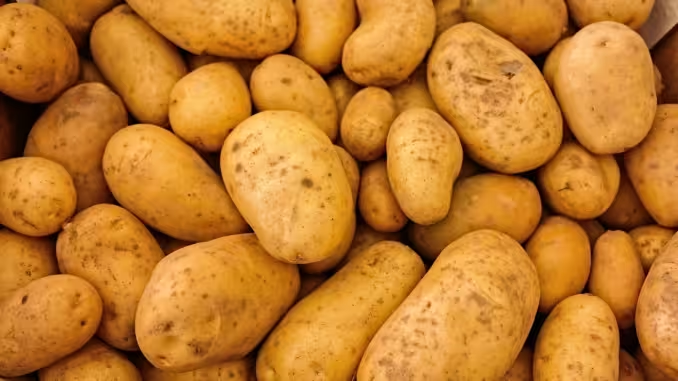
My wife followed a variation of the potato diet for 28 days. In that time she ate only potatoes for 3-4 days each week, losing several kilograms in bodyweight. She was interested in doing it after I mentioned the impressive results from several others, some of whom lost over 100lbs by incorporating this diet.
The diet is credited to several individuals, including Chris Voigt, who ate only potatoes for 60 days to “raise public awareness of their nutritional value”. His judgement on that is a little off, as an all-potato diet lacks sufficient fat soluble vitamins A, E and K, as well as several important minerals.
Potato Diet – The Rules
As you can imagine from the name, the rules of the Potato Diet are not overly complex.
- The only food you are allowed is plain potatoes. They can be baked or boiled, but not fried.
- No high calorie condiments or toppings on the potatoes are allowed.
- You can’t add oil during the cooking process.
- You can season them with herbs, spices and low calorie condiments.
- No potato-based foods, such as crisps or French fries.
- Eat when you’re hungry, ignore traditional meal times.
- For drinks, limit yourself to black coffee, tea or water.
- Continue until you’ve reached your goal weight.
Potato Diet – Modifications
I cannot stress how suboptimal the potato diet is in its original format. To give it some context, it was awarded a Healthline Diet Score of 1.08 out of 5. My main concern for my wife was the lack of protein and to a lesser extent the lack of fat.
As a modification, I requested she eat a single can of tuna each day for protein. For the fats it was to be either a glass of kefir or a serving of coleslaw. The protein-rich tuna was to counter what would otherwise be significant muscle loss, which compromises the health benefits of overall weight loss [1].
I also asked her to follow the potato diet for no more than 3-5 days each week.
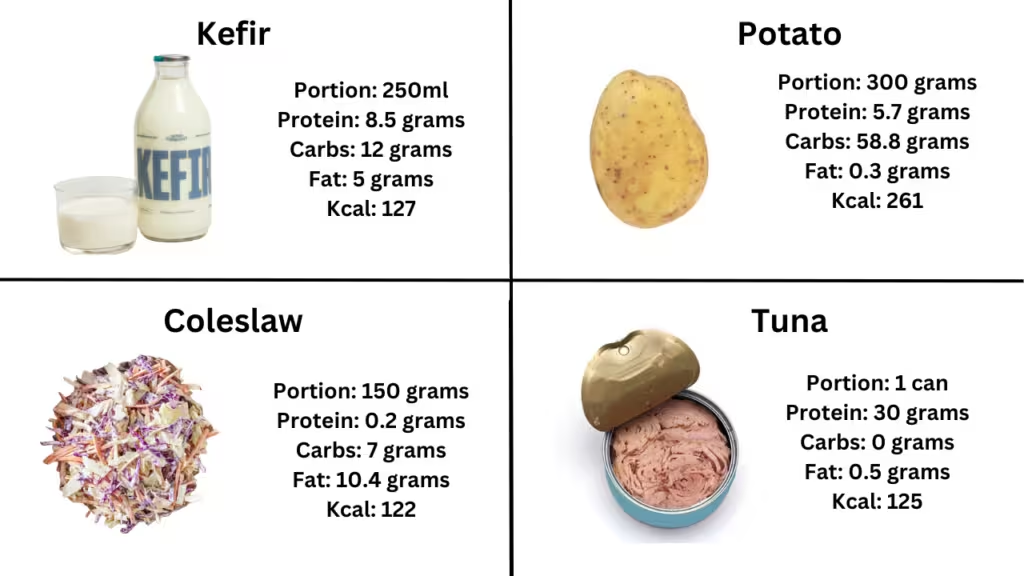
Potato Diet – The Results
My wife was 65.3kg when she started this and finished at 63.3kg, losing 2kg or 4.4lbs. She wasn’t considered overweight or obese to start with, but having put on 3.5kg the previous year she was keen to lose weight. This is very different from the starting weight of other followers of the potato diet, most famously Penn Jillette.
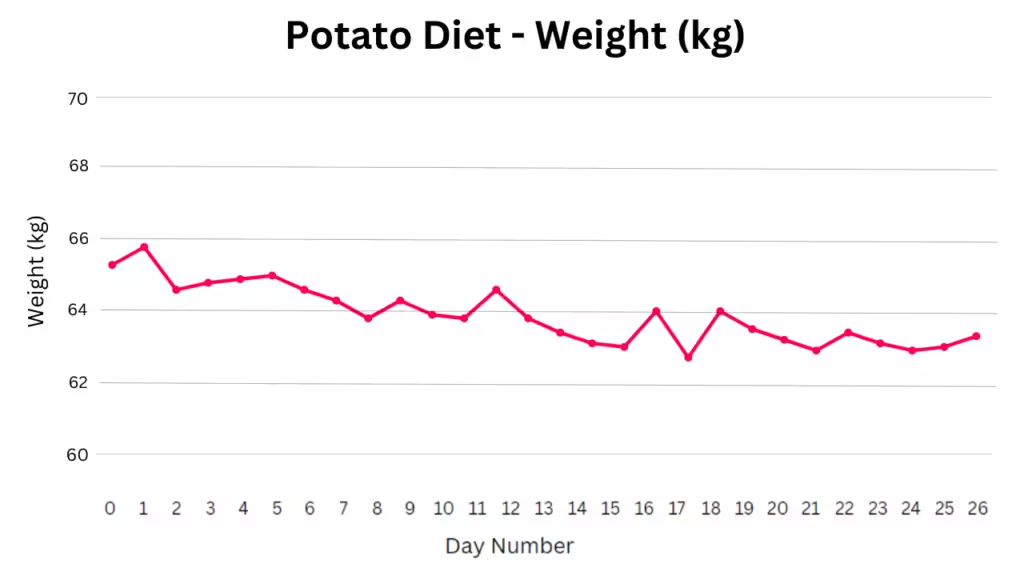
She lost weight, but unfortunately more than half of what she lost was lean body mass. Her overall body fat dropped by 0.4% as she lost 1.2kg of muscle and 800 grams of fat. In the long run this means she will burn fewer calories each day and be more susceptible to long term weight gain.
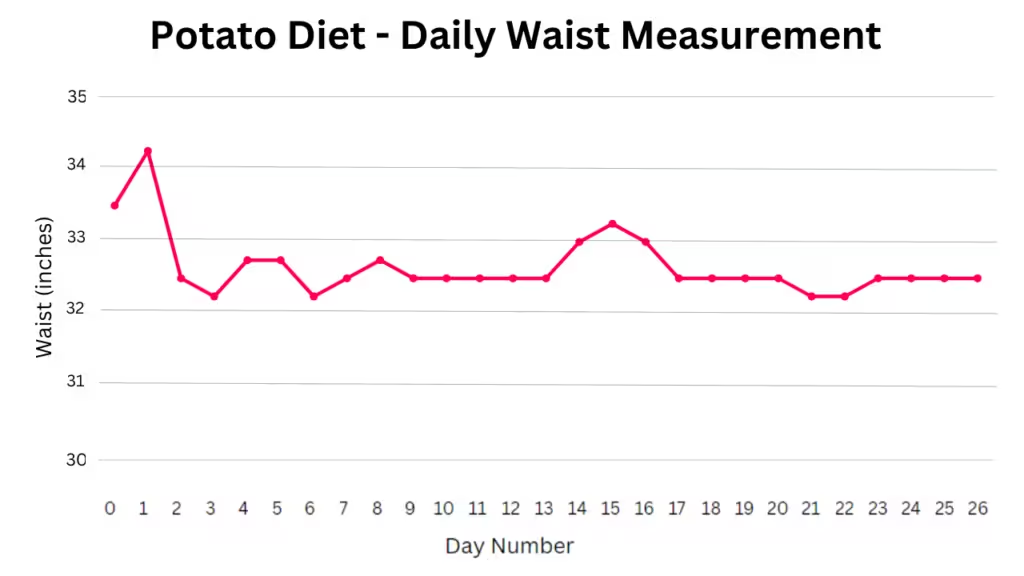
She also managed to lose an inch off her waist across the 27 days. As you can see in the graph above, this all happened in the first four days.
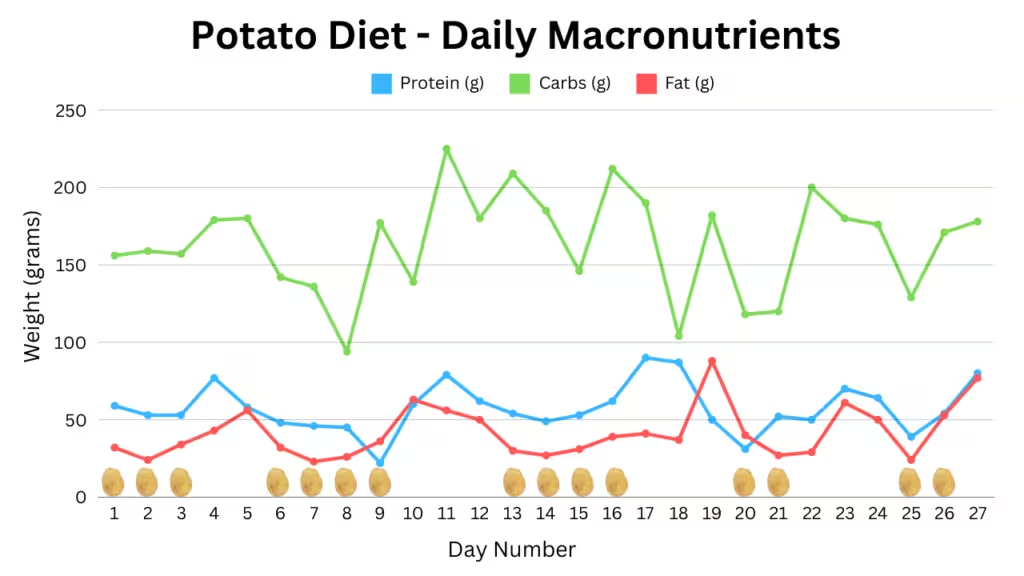
The final graph is her macronutrient splits across the 27 days. Each potato indicates a “potato diet” day, where average calorie intake was 1110 kcal. This compares to 1476 kcal on her “non-potato diet” days, supporting the findings that potatoes are one of the most filling foods you can eat.
In terms of macronutrients, protein on the potato diet was 48 grams, carbohydrates were 154 grams and fats were 32 grams. Contrast this with what she would consume on an all-potato diet, which is closer to 30 grams of protein and a measly 2 grams of fat. While many people grumble about modifying the diet, I believe doing so significantly reduces the long term health risks of eating only potatoes.
Conclusion
The success stories of the potato diet revolve around morbidly obese people who have large amounts of weight to lose. For the average person, the lack of protein will mean a high proportion of muscle mass is lost, which is not ideal. I do not consider this diet to be a “success” simple because the scale weight has dropped.
If you are interested in learning more about preserving muscle mass when losing weight, please see the original video below.
Before following any eating plan, please consider your long term health. Calorie restriction should be accompanied by sufficient protein and resistance training in order to hold on to lean muscle mass.
[1] Preserving Health Muscle during Weight Loss, Cava E, Yeat NC and Mittendorfer B, 2017

